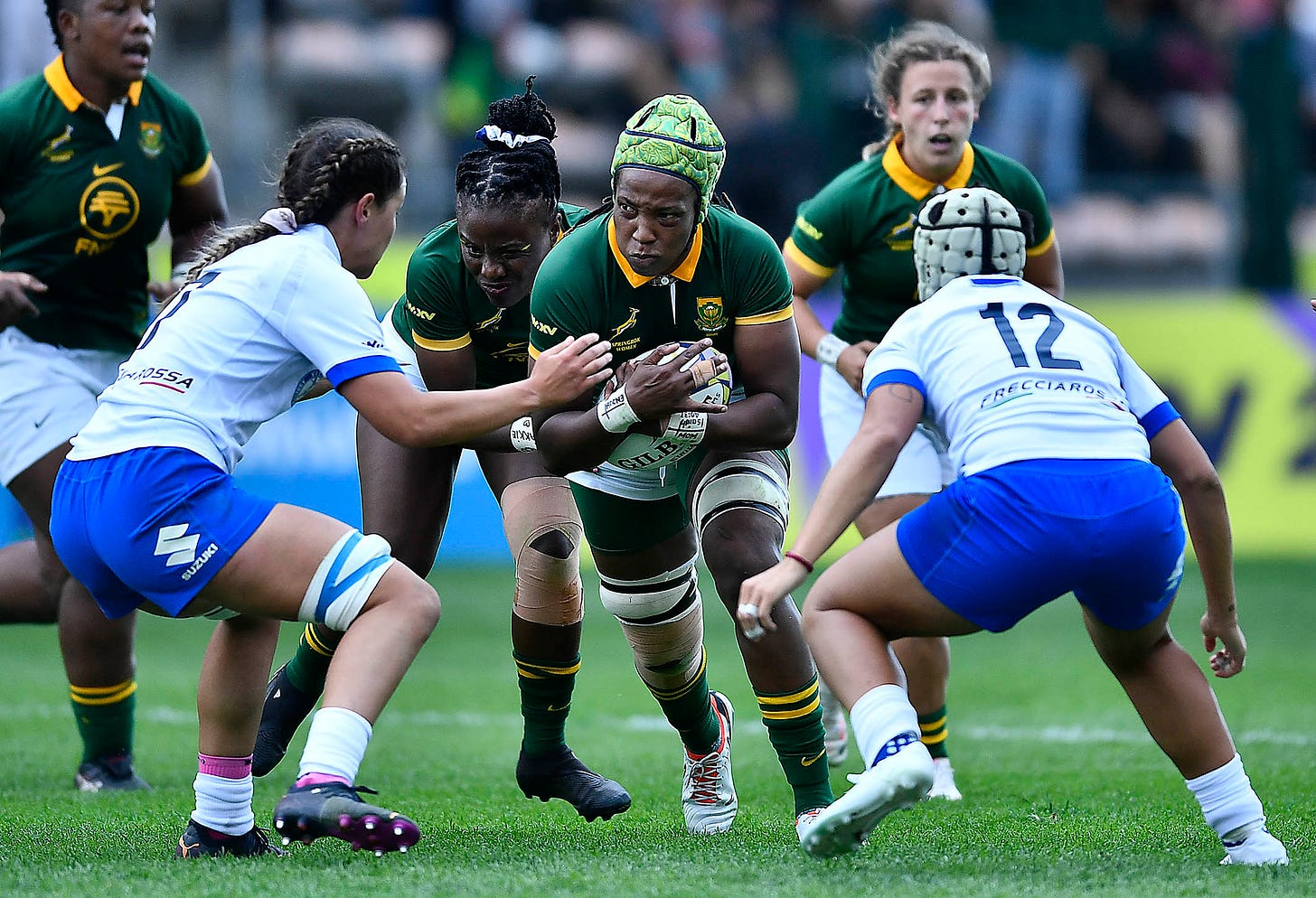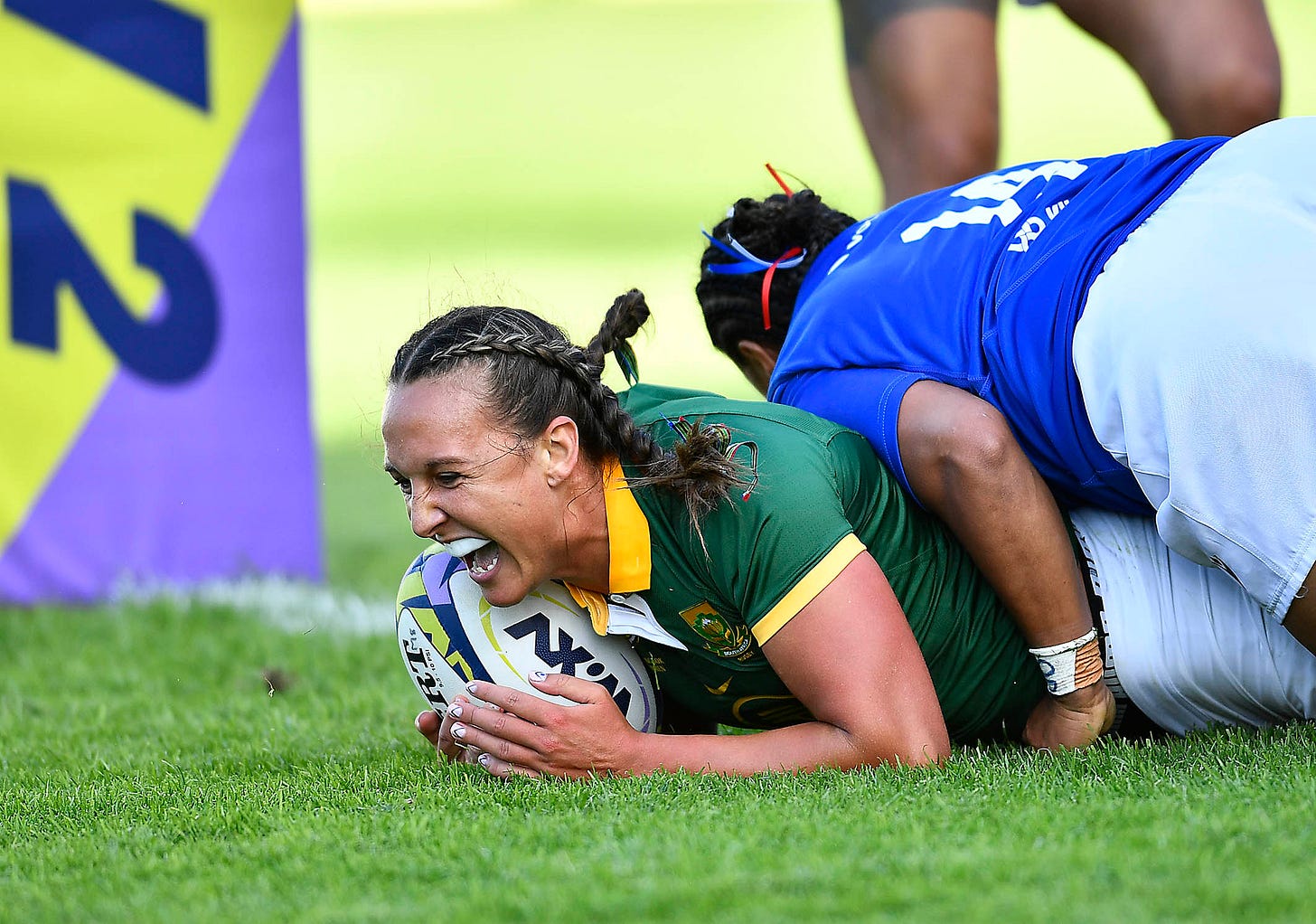For the Springbok Women, the try line is finally in sight
After decades of neglect, the South African women’s rugby team is finally getting the support it needs.
Lee Nxumalo

After a triumphant 2023 Rugby World Cup campaign, the Springboks confirmed their status as the most successful national side in men’s rugby.
The question that now gets asked is: can the women’s side do it too?
While the comparison is inevitable, it is entirely unrealistic. As former Springbok Women coach Stanley Raubenheimer told Rugby World: “It would be unfair to expect the women to emulate the success of the men given the vastly different circumstances within the rugby systems in South Africa. Women’s rugby is still in its infancy over here, but there is a lot of effort going into the game.”

The team was formed in 2004, and two years later they made their debut in the Women’s Rugby World Cup, also participating in the 2010 and 2014 editions. But in 2017, SA Rugby decided to forfeit their participation in the tournament to focus on rebuilding the women’s game further following disappointing results.
In the following years, there were significant changes aimed at revitalising women’s rugby. SA Rugby took steps to bolster the women’s rugby programme, including hiring Lynn Cantwell, a former captain of Ireland’s women’s team, as the high performance manager. Additionally, 19 other positions were created to develop the sport including the appointment of Raubenheimer in 2018.
This involved creating what Cantwell called the “big pillars”, a direction that would move them from a developmental stage to performance-focused goals.
On a senior level, the goal was to get the team back on the world stage after a fouryear absence. They managed to secure victories in the Rugby Africa Women’s Cup in 2019, 2022, and 2023.
But 2022 brought some challenges for women’s rugby. The team endured a disappointing group stage exit at the 2021 Rugby Women’s World Cup, losing all three games, including a discouraging 75-0 defeat against England.
Yet Cantwell still found the year to be a step forward for the team. “We managed to get back into the tournament. You can’t get good at World Cups unless you’re in them,” she told The Continent. “There’s growth. I know everyone judges the programme on World Cups, but where we were at that stage, we needed to gain game experience. We’re going to have to play a lot of games and get better and that’s okay because we’re learning to win.”
The Springboks Women are under the guidance of former Springbok Louis Koen, who assumed the role of interim coach in March 2023. The team is 13th in the world rankings and finished their WXV2 campaign with a 33-7 victory over Samoa.
The 20th anniversary of the team this year coincides with preparations for the upcoming Paris Olympics for the sevens team and the 2025 Women’s Rugby World Cup for the 15s and that places a sharp focus on the team’s progress.
On the local front, significant strides have been made on the club level. Last year, the Bulls Daisies, a part of the Blue Bulls franchise, achieved a historic milestone by becoming the country’s first fully professional women’s rugby club team.
Their remarkable journey culminated in winning the Women’s Premier Division title, as they won every game they played throughout the season.
Goitseone Nche, also known as Fox Nche – the younger sister of Springbok Ox Nche – currently plays tighthead prop for the Free State Cheetahs. By her account, she has witnessed a lot of changes within club structures. Not only is rugby becoming a more viable career for women, but there is more visibility, now more than ever.
“I’ve been playing since I was in the unders and there has been a huge change … there is more recognition as our games are being played on TV and in the past, that didn’t really happen,” the 26-year-old told The Continent.



